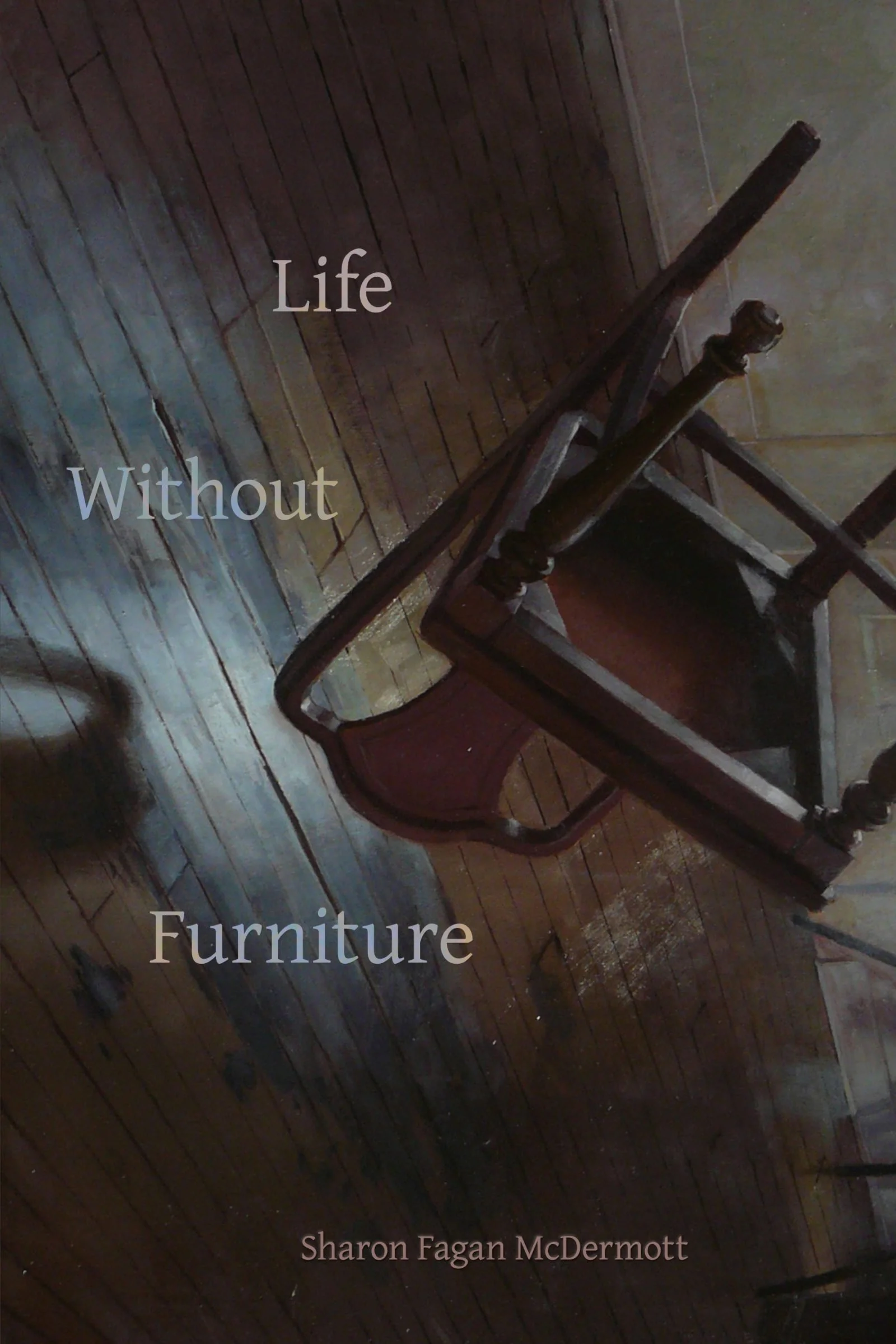POETRY BOOKS BY THIS AUTHOR
“In Life Without Furniture ‘the whole visible world flows through one white birch.’ Sharon Fagan McDermott inhabits the spaces between the common and the uncommon: the rich landscapes between ‘A State of Un-Union’ and ‘Driving Home After Singing at Club Café,’ the ineffable sensations between ‘The Geography of Solitude’ and ‘The Hymn of Constellations.’ Even the poems’ titles signal the many resonances of Life Without Furniture. The whole world, visible and invisible, inhabits this wonderful new book.” ~ Terrance Hayes, 2010 Nathional Book Award Winner for Lighthead (Penguin Books, March 30, 2010)
“Sharon Fagan McDermott’s Life Without Furniture is remarkable for the generosity of its attention and the precision with which it renders the objects of that attention…These poems move through interior and exterior landscapes, between elegy and praise song. Through such keen observation, the ordinary is uplifted, the way that, in ‘Summer Prayer: Pennsylvania,’ the ‘beloved dead’ ‘console us with such luminous days / that we remember them all over again.'” ~Nancy Reddy, author of Double Jinx (Milkweed Editions, 2015)
“Sharon McDermott has an acute musical ear, and the life of sound, and how it intensifies feeling, is everywhere in Bitter Acoustic. ‘Then drizzle blew the night to pins’ is an instance early in these pages. The book, for me, begins in blues, rueful, not self-pitying; wise, but caught. Then in the second part of the book, the ground begins to shift: the poetry itself seems happy to be joyful, and gains life from it. A hard-earned, beautiful book.” ~Jean Valentine, National Book Award Winner Door in the Mountain: New and Collected Poems, 1965-2003
“Like alleys themselves, Sharon McDermott’s poems are tough, gritty and sometimes violent. They are also lively, daring, on edge, and filled with ironic juxtapositions. Many of the poems are literally set in alleyways; others deal with metaphoric passages such as adolescence, midlife, death, sex changes, and daydreams. McDermott is intrigued by “fringe space[s],” the “in-between world[s]” that constitute a “crack between ordered lives,” where “boundaries [are] breached/and breached again.” After all, “in-between is/both about erasure and new blooming.” ~ from Parallel Press website



